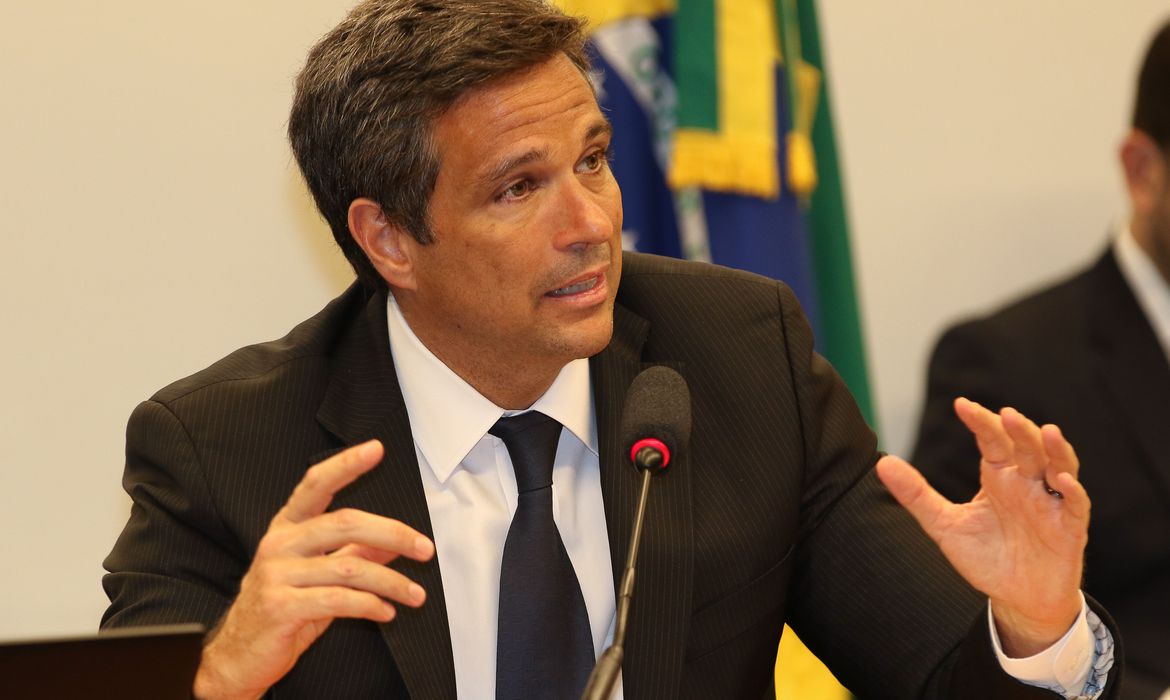RIO DE JANEIRO, BRAZIL – The return of foreign resources to Brazil, after the massive outflow of investments between March and April, was proportionally lower than that of foreign peers due to Brazilian environmental policy, points out Roberto Campos Neto, president of the Brazilian Central Bank.

“What started to become more apparent is this perception in relation to everything that is a sustainability agenda, now so widespread in other countries. This perception, at times by the narrative or at times by what has been occurring [in Brazil], was preventing the flows to Brazil from returning at the same rate as they did in some emerging countries. Indeed there is much concern over the environment among investors,” Campos Neto said in an interview with CNN Brasil on Tuesday evening, October 13th.
In June, a group of 29 global investors signed an open letter to Brazil, voicing concern over the country’s environmental policy and human rights. Together, they hold US$3.7 trillion (R$20.6 trillion) in assets managed around the world.
According to the IIF (Institute of International Finance), which comprises 450 banks and investment funds in 70 countries, the balance between investments and withdrawals by non-residents in Brazil will be negative by US$24 billion (R$134 billion) this year. In 2019, withdrawals totaled US$11.1 billion (R$62 billion).
“The Central Bank is not a creator of this type of policy, but we warn and show the way. We talk to investors and establish a link between investors and the government so that we can align a narrative that is constructive for the future,” completed Campos Neto.
On the Brazilian stock market there is US$88,6 billion less from foreign investors this year, a record figure and almost double the amount in 2019, when a net US$44,5 billion was withdrawn.
“The fiscal issue is what most afflicts investors today. We need to show that Brazil is able to do everything it needs within a sustainable fiscal trajectory. What people want to see from the government is, once the pandemic is over, ‘what’s your reform plan?'”, said Campos Neto.
The Bolsonaro government has already signaled that the administrative and tax reforms will be postponed until 2021. The Emergency PEC (Proposed Constitutional Amendment) and the Federative Pact PEC, which includes the Renda Cidadã (Citizen Income), an inflated substitute for the Bolsa Família (Family Grant), may be submitted after the municipal elections in November this year.
“Investors understand that there is an electoral process. The important thing is not the time [of the fiscal adjustment measures], but rather the uncertainty surrounding the most important fact: how our fiscal convergence will look from now on,” he said.
“We had an atypical year, with extraordinary spending that was perfectly justifiable, but as Brazil was already coming from greater fiscal fragility, it placed us in a situation of very high debt compared to the average of the emerging world, and we need to address this now with a medium-term solution to show that we are going to revert to fiscal convergence.”
In September, a month marked by discussions on financing the Renda Cidadã, which would avoid exceeding the spending cap by using highly controversial sources such as FUNDEB (fund for education) and court escrow account releases (government debts held by the Courts), the Brazilian stock market accumulated a drop of 4.8 percent while the dollar climbed 2.6 percent, and future interest rates rose.
“Recently the weight of fiscal variables became more important because Brazil has a great fiscal vulnerability, so any solution that reaches investors that we are changing the fiscal regime, or that we will take much more time to reach a fiscal convergence will reflect on the markets, the credibility of the country and the investors’ desire to invest here,” said Campos Neto.
The Central Bank president said that the fiscal situation explains the depreciation of the real, the emerging-country currency that is most losing value against the dollar this year. The dollar has risen by 39 percent in 2020, now at R$5.58.
The president of the BC also said that the Brazilian currency was pressured by the SELIC (government basic lending rae) falling to its historic low of two percent per year, which drove foreign investment away from Brazil’s fixed income investment vehicles, leading to a dollar outflow from the country.
According to Campos Neto, the basic interest rate will rise only in case of risk of exceeding the inflation target, currently at four percent. In the past 12 months, inflation has reached 3.14 percent with a rise in food prices in recent months.
According to him, the rise in prices is temporary and due to the influence of the high dollar on fuels, the emergency aid payments, and the substitution effect on the food basket, with greater spending on food at home and less on leisure due to the Covid-19 pandemic.
Recently, he said the Central Bank would withdraw the signaling of stability for interest rates in case of a change in fiscal conditions. “This does not mean that we will raise interest rates, but that this instrument is conditional on something [fiscal stability] that may not exist in the future.”

